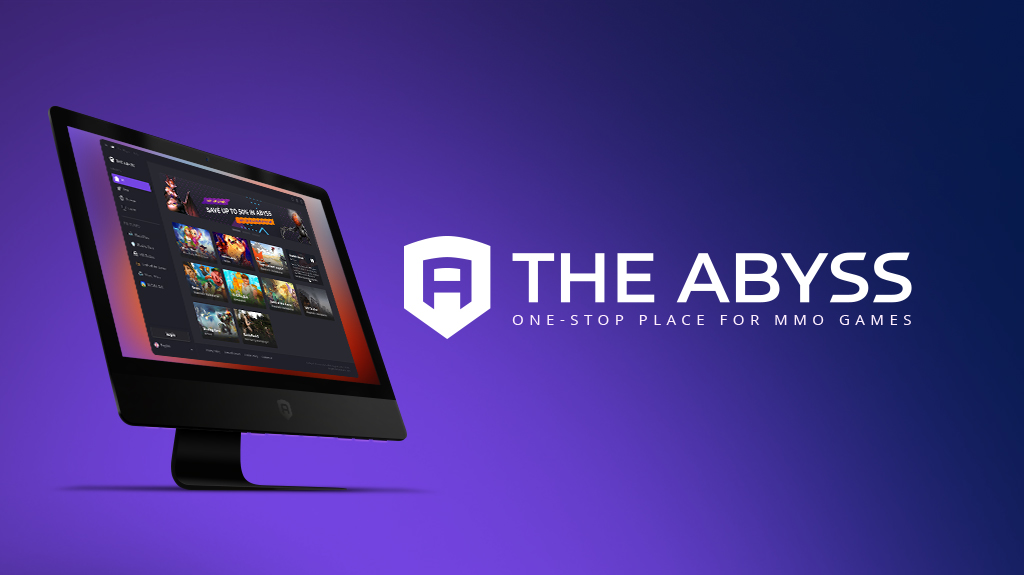The Abyss Platform is a social game distribution platform enabled by blockchain technology that focuses on multiplayer games and games involving cryptoassets.
The platform is operated by The Abyss Ltd., headquartered in Malta, and since its launch in March 2019, the platform has continued to grow by adding games, features, and drawing in users with its sleek user interface for the web and Windows.
The Abyss has grown to ten games with more on the way and has implemented multiple social features that directly involve gaming audiences and blockchain technology.
Games on The Abyss include the blockchain-enabled click-based RPG Chain Warriors, action strategy games that involve fantasy and sci-fi elements such as Encased and Techwars: Global Conflict, a pirate ship combat game called Tempest, and even a game where people fight at concerts called Music Wars.
Most games currently published on the platform are free-to-play but some paid titles are arriving.
Blockchain technology uses distributed ledgers and cryptographic keys to create provable ownership of virtual assets. This is the origin of the term cryptocurrency, for digital coins such as bitcoins, and cryptoassets, which can refer to virtual items stored on a blockchain. Video game characters, equipment, and cosmetics could all be represented as cryptoassets on a blockchain creating an interchangeable economy of virtual items.
“The Abyss is a game distribution platform, that is, a platform that delivers products to end-users,” Vladimir Kurochkin, president of The Abyss, told Vox Ex Machina in an interview. “We deliver a set of specific services and technologies that facilitate this process and reduce ‘the-time-to-market’ for developers (they spend less time and resources to launch a product and bring it to the market). Since we adore blockchain technology, we also have a set of special technologies for blockchain games.”
As a video game distribution platform, The Abyss allows developers to publish their video games using web and Windows client to connect games through The Abyss ecosystem.
Part of that ecosystem is the “Abyss Token,” a blockchain-based currency that is used by The Abyss in order to provide rewards to users, which can be used for discounts on games on The Abyss or exchanged other cryptocurrencies (which in turn could be used to make money).
The Abyss primarily rewards players with tokens through a referral program, which the company uses to attract users to play its games and spend microtransactions. Users can also be rewarded with Abyss Tokens for participating in a creator’s program that incentivizes social activity for players who produce content such as livestreams and videos of The Abyss games.
Developers who publish games on The Abyss have the ability to reward players with Abyss Tokens for playing their games. This can be attached to achievements earned in the game that become tokens on the platform to incentivize players to progress further into games. Developers can also reward players for participating in beta tests, bug hunting, and content generation.
One game in particular on The Abyss is Chain Warriors an internally developed project from the company that uses blockchain technology to allow users to package and trade in-game equipment (review here on Vox Ex Machina).
Players of Chain Warriors play to earn weapons and armor of varying rarity, do quests and earn points in order to win rewards, some extremely rare equipment can be traded on the Waves Marketplace with other players for cryptocurrency.
“Currently, Chain Warriors actively collaborates with Waves blockchain and uses their protocol to tokenize in-game items,” Kurochkin said. “At the same time, we are not strongly attached to this standard, because we believe that the future of blockchain gaming is not in the use of any specific token or blockchain network, but rather in building an open economy where the same items can be available on various platforms.”
Kurochkin added that in the future Chain Warriors would be built to have multi-chain support, including well-known public blockchains such as Ethereum, so that developers have more opportunities to include more blockchain-created functions such as easy trading of virtual items.
He said that he believes blockchain technology can benefit both developers and players by enabling new game mechanics, a new level of openness and trust in games because players can know that they control their own assets. Other benefits would include the ability to trade assets between different games, the ability to create collectible and limited-edition items, which is already used by collectible card games and toy-based games in the real world.
Examples of this include games such as Gods Unchained from Immutable, which uses blockchain-technology to produce player-owned virtual trading cards as assets. These cards can then be released with their own provable rarity and in limited edition “print runs.” Because the cards are published on a blockchain, it can be verified that a limited number exist.
It is even possible for truly unique cards to exist, such as the Gods Unchained Mythic Titan cards, one of which recently sold for $31,000.
“Today, all crypto gaming projects are at a very early stage of development,” Kurochkin said. “It seems to us, that the main problem with them is an attempt to marry up blockchain technology with the existing mechanics in order to earn additional money. As game developers, we’re trying to create game mechanics where blockchain serves as a logical continuation of the game process.”
The roadmap for The Abyss continues to add more social and blockchain features to the platform into 2020 and new games have already been announced for the platform including the grim sci-fi action shooter Age of Rust, which will also include collectible blockchain items.
Players and developers can sign up for The Abyss today and take advantage of this interesting new development in the gaming industry.





Recent Comments